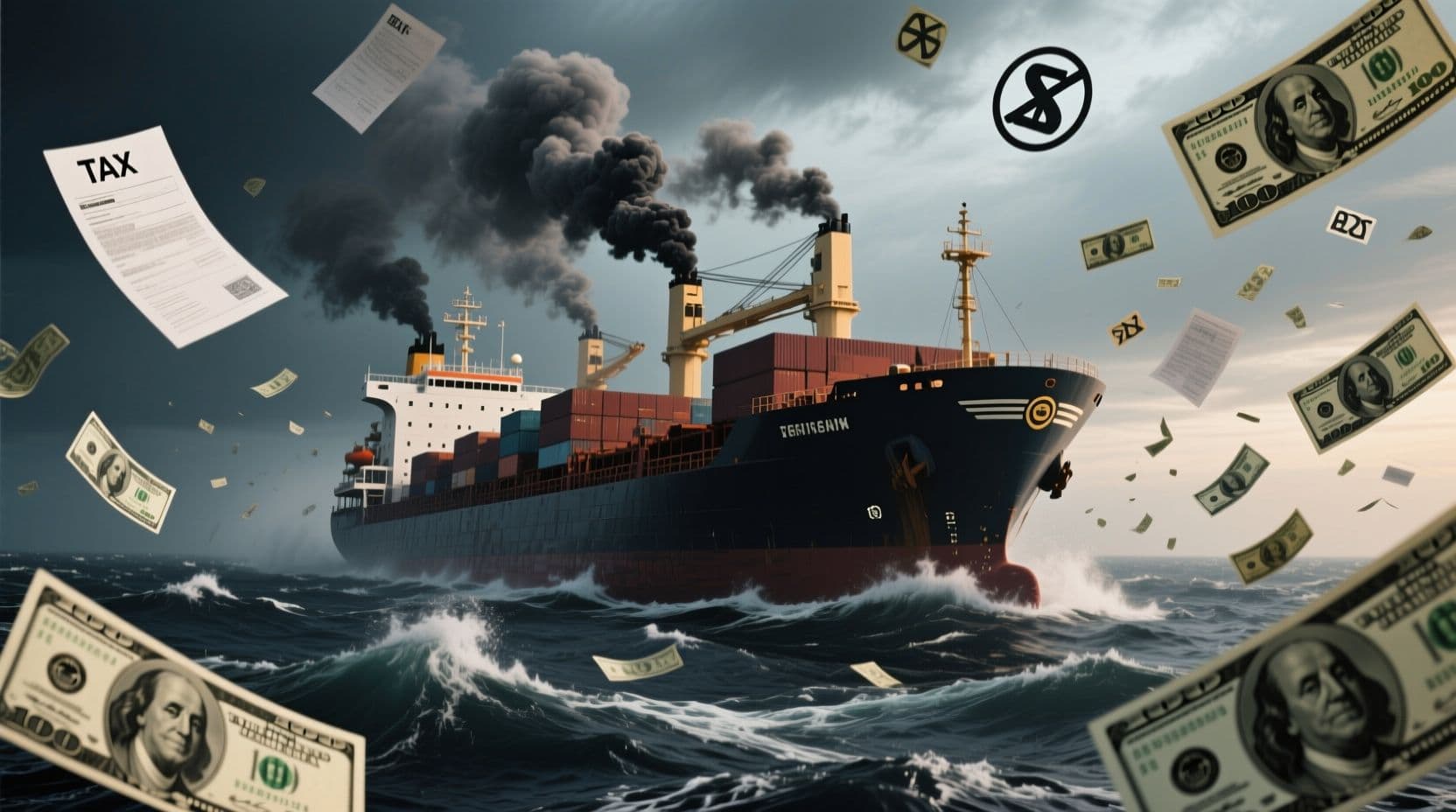The Lead Story
A carbon wave hits the high seas
The International Maritime Organization’s (IMO) proposed Net-Zero Framework , effectively a global carbon tax on shipping , has governments and tax professionals reaching for their life vests. Within hours of the plan surfacing, the EU vowed to revisit its own climate levy rules, while the United States threatened to bar compliant vessels from its ports, calling the proposal a “European-led neocolonial export” (FreightWaves).
What’s on the table
Set for a vote in London this week, the framework would force operators to report greenhouse-gas emissions annually. Ships that overshoot the limits would pay fees tied to their excess output; cleaner fleets earn credits. The EU quickly signalled it will “review and align” its Emissions Trading System in light of the plan, according to Shipping Telegraph. But Washington is steering hard the other way: the State Department warned of extra port fees, denied entry, and even crew-visa blocks for nations backing the tax.
Closer to home, similar transformative measures are underway in Nigeria; for example, our discussion on Nigeria’s New Tax Playbook Ruffles Aviation, Woos Big Tech highlights domestic shifts influencing trade and taxation approaches.
Why it matters
International shipping moves 90% of global trade. A levy that, by U.S. estimates, could inflate freight costs by 10% or more would trickle down every supply chain. “This will be the first time that a United Nations organization levies a global carbon tax on the world,” the U.S. statement barked. Tax lawyers note that a patchwork of retaliatory tariffs, port surcharges or carbon-border adjustments could quickly follow. For further background on evolving tax frameworks, see our Introduction To Nigerian Tax Laws for a deeper dive into modern tax regulations in Nigeria.
Around the Tax World
- Luxembourg carves out clarity. New amendments to Anti-Tax-Avoidance Directive 2 (ATAD 2) provide an investment-fund exemption and sweeten the carried-interest regime, moves designed to keep the Grand Duchy atop the funds leaderboard (International Tax Review).
- Saudi Arabia widens the transfer-pricing net. From fiscal year 2024, zakat payers, not just income-tax filers, must file disclosure forms and, above certain thresholds, Master and Local Files, per ZATCA’s latest guidelines (Middle East Briefing).
- Denmark super-sizes share incentives. A November bill will scrap the 50% salary cap under the popular 7P scheme, letting many more SMEs grant unlimited equity to employees on a deferred, lower-rate tax basis (KPMG Denmark).
By the Numbers
Tax Stat of the Day: 10%, the potential jump in global shipping costs if the IMO carbon price sails through, the U.S. State Department warns (FreightWaves).
Looking Ahead
All eyes are on London. If the IMO vote passes, expect a flurry of regional rule-making, and possibly U.S. port reprisals, before year-end. Meanwhile, domestically, policymakers are actively working on reforms as detailed in the Nigerian Tax Laws 2025, offering insights into the emerging tax landscape.
